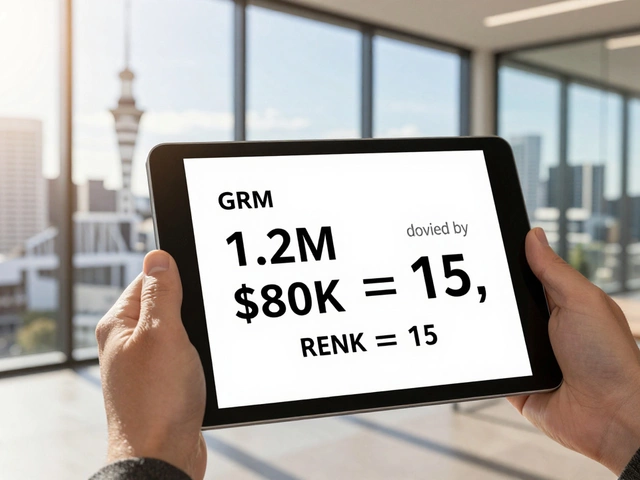How Long Can You Live in Your House Without Paying a Mortgage?

Stopping mortgage payments isn't some quick escape plan—it's risky business. The truth is, when you quit paying, things don’t go south overnight. Banks first send letters, then calls. It typically takes three missed payments before they even start formal steps, and that’s just the beginning.
The process drags on a lot longer than most folks think. In certain states, you could stay put for over a year before the bank can legally force you out. Some homeowners have stayed even longer, depending on how slow the courts move or how messy the paperwork gets. But don’t get comfortable—there are downsides and surprises along the way (hint: ruined credit for starters).
- What Happens When You Stop Paying Your Mortgage
- The Foreclosure Timeline: How Long Do You Have?
- Tricks and Delays: Can You Stay Longer?
- What to Expect Legally and Personally
- Tips and Warnings Before You Decide
What Happens When You Stop Paying Your Mortgage
So, what actually happens if you stop making your monthly mortgage payments? First, your lender won’t come banging down your door after one missed check. The process is pretty structured, and there’s a very clear playbook that banks and loan servicers follow.
Here’s what usually goes down:
- Miss one payment? Your bank sends you a late notice. Expect calls, emails, and letter reminders. You’ll also get hit with a late fee, usually 3-5% of your monthly payment.
- Miss a second payment? Things get tenser. The lender keeps reaching out. Some banks start reporting your missed payments to the credit bureaus at this point. Your credit score slides.
- Miss the third payment? Here’s where the big threat pops up: the “Notice of Default.” This is the official warning that you’re in trouble, and it kicks off the legal road to foreclosure.
Once you hit 90 days past due, the mortgage company usually hands your file over to their foreclosure department. If you’re wondering what this all looks like on a timeline, check these typical steps:
| Timeline | What Happens |
|---|---|
| 30 Days Late | Late notice sent, late fees added, credit score hit. |
| 60 Days Late | Second notice, more lender calls, may report to credit bureaus, more late fees. |
| 90 Days Late | Notice of Default issued, foreclosure process starts. |
| 120+ Days Late | Foreclosure officially filed. From here, the timeline depends on your state’s laws. |
Keep in mind, even after getting the Notice of Default, you usually have some time to “cure” or fix the missed payments. But once your lender files for foreclosure with the court, it gets way harder to turn back. If you’re getting close to 120 days late, expect regular mail to include all sorts of legal documents explaining what comes next.
One last important detail—if you have an escrow account tied to your mortgage (most people do), your bank might stop paying your property taxes or homeowners insurance. That can open a very expensive can of worms, adding to your headache.
The Foreclosure Timeline: How Long Do You Have?
If you stop paying your mortgage, the clock doesn’t start ticking right away. Most banks don’t take action until you’ve missed at least three monthly payments. That means you could have about 90 days before your lender gets serious about foreclosure. But what happens after that? Here’s a clear look at a typical timeline. Just know, these numbers can shift depending on your state and how busy the courts are.
| Stage | Average Time |
|---|---|
| Grace Period Before Warning Letter | 30 days after first missed payment |
| Formal Demand Letter Sent | Day 31 to 90 |
| Foreclosure Filing (Notice of Default or Lis Pendens) | Day 90-120 |
| Foreclosure Sale Scheduled | 4-12 months after filing |
| Eviction Notice | 2-4 weeks after home sold |
Here's what that means for you on the ground. Once you miss your first payment, you might only get some phone calls. By the third missed payment, the bank sends a formal notice. From there, it usually takes 30-90 days for them to file official paperwork in court (called Notice of Default in most states).
After the filing, things slow down. In some states like New York or Florida, the whole process can take over a year and sometimes longer—think 18 months or even two years in crazy backlog situations. Non-judicial states like Texas move a lot faster, sometimes wrapping up in as little as 6 months.
- If your loan is federally backed (like FHA or VA), there are more built-in delays—lenders typically must wait at least 120 days after the first missed payment to start things.
- If you fight the case in court or ask for loan mods, that can slow things down too.
One thing’s certain: there’s no magic time number. The type of loan, state laws, and whether you engage with the bank all change the game. If you’re thinking of stopping payments, don’t assume you’ll get a year everywhere—some places just aren’t that slow. Either way, always check the rules where you live before you risk it.

Tricks and Delays: Can You Stay Longer?
Here’s where things get interesting—people actually manage to live in their homes for months (sometimes years!) after they stop paying their mortgage. It's not magic; it's about using the rules and loopholes in the system. But, there’s no guarantee things will go in your favor. Let’s break down how this sometimes plays out.
Banks usually have to jump through a lot of hoops to kick you out. The whole process moves slow, especially if your state has a lot of legal steps. That’s why some folks take advantage of every delay they can. Here are the most common tricks people use:
- Loan modification requests: You can apply for a modification, and while the bank reviews it, they often pause the foreclosure. Even if your chance is slim, just the application piles on weeks or months.
- Filing for bankruptcy: This move triggers an "automatic stay," meaning all collections—including foreclosure—are put on hold for a while. It doesn’t stop it forever, but it can buy a few more months, especially if paperwork moves slow.
- Demand to see original paperwork: Believe it or not, banks sometimes struggle to find all the original loan documents. Any small error can stall the process. Borrowers have used this to delay for quite a bit, especially right after the 2008 crisis.
- Court delays and hearings: Contesting the foreclosure in court with a lawyer often drags out the timeline. Even showing up and asking for more time usually gets you another hearing or two.
Just how long can these tricks push things? Let’s look at typical state timelines for the whole process, from first missed payment to getting kicked out:
| State | Average Foreclosure Timeline (Months) |
|---|---|
| New York | 33 |
| Florida | 19 |
| California | 11 |
| Texas | 6 |
Keep in mind, these are averages. Some homeowners have dragged it out even longer. That being said, none of these moves come with zero risks. Your credit gets hammered, and in some cases, you could end up owing extra money if the home sells for less than the loan amount. So while stalling can give you time, it’s not a fix—it’s just a way to delay the clock.
What to Expect Legally and Personally
Once you stop paying your mortgage, the legal stuff starts stacking up pretty fast. Most banks won’t mess around forever—they follow a set process to take back what they’re owed. Here’s what really happens, so you know what you’re dealing with.
- Mortgage late notices pile up first—expect letters and calls after a single missed payment. If you hit the third straight miss, that’s when the bank usually jumps into foreclosure.
- Foreclosure laws vary a ton. For example, places like Florida and New York use judicial foreclosure, meaning it goes through the courts, and that can drag the timeline out by 9 months or even longer. In non-judicial states like Texas or California, the process is way faster—sometimes just a few months.
- Your credit score will tank once foreclosure shows up on your record. If you’re hoping to buy anything on credit later, even a car, expect to pay sky-high rates or get denied. This mark can stick for up to 7 years.
- Once the bank gets the legal right, a sheriff or local official will show up with paperwork telling you to leave. There’s usually a final date—sometimes as little as 48 hours, though some places can give you a week or two.
- If you try to hold out past the move-out deadline, you risk forced eviction. Not fun—think moving crews on your lawn and your stuff set on the curb.
Personally, this time can get pretty rough. The stress is real, especially with calls from collectors and the uncertainty about when you’ll need to pack up and leave. If there’s anyone else living in the house—kids, roommates, even renters—they’re pulled into it too. You might get offers from the bank for “cash for keys,” where they’ll pay you a bit to leave quickly and not do damage to the place. That can help soften the landing, but it won’t solve the long-term fallout.

Tips and Warnings Before You Decide
Thinking about stopping your mortgage payments on purpose isn’t just about getting a few extra months in your house. Before you go down that road, there are some real-life consequences and steps you need to know.
- Your Credit Takes a Beating: Most lenders report late payments to credit bureaus after 30 days. Miss three payments, and your score could drop more than 100 points, making it tough to get any loan or even rent a place later.
- Not All States Move at the Same Speed: States like New York and New Jersey can drag out foreclosures 1-3 years, but places like Texas can wrap it up in just a few months. Know your local laws before assuming you have lots of time.
- You Still Owe Property Taxes: Even if you’re dodging the bank, the county still wants its money. Fall behind and they can slap a lien on your house or even start a separate foreclosure just for that.
- Hidden Costs Add Up: Pile on late fees, legal fees, and back payments—you could be staring at a hefty bill when it’s all over.
- Negotiation Might Be Better: Some lenders offer options like forbearance, loan modifications, or short sales that could work out better than just not paying.
Check out this quick table to see how long foreclosures can take in some states:
| State | Average Foreclosure Time (Months) | Fastest Possible | Slower Than Average |
|---|---|---|---|
| New York | 18 | 12 | 36+ |
| California | 9 | 6 | 18 |
| Texas | 3 | 2 | 6 |
| Florida | 12 | 9 | 24 |
It’s smart to talk things through with a housing counselor or lawyer. Many offer free or cheap consultations just to help you figure out your options and how fast things could move in your area.
Last thing—be careful with anyone who promises to "save your home" for a big upfront fee. There are a ton of scams out there. If something looks shady, check with your state’s attorney general or HUD-approved agencies first.




